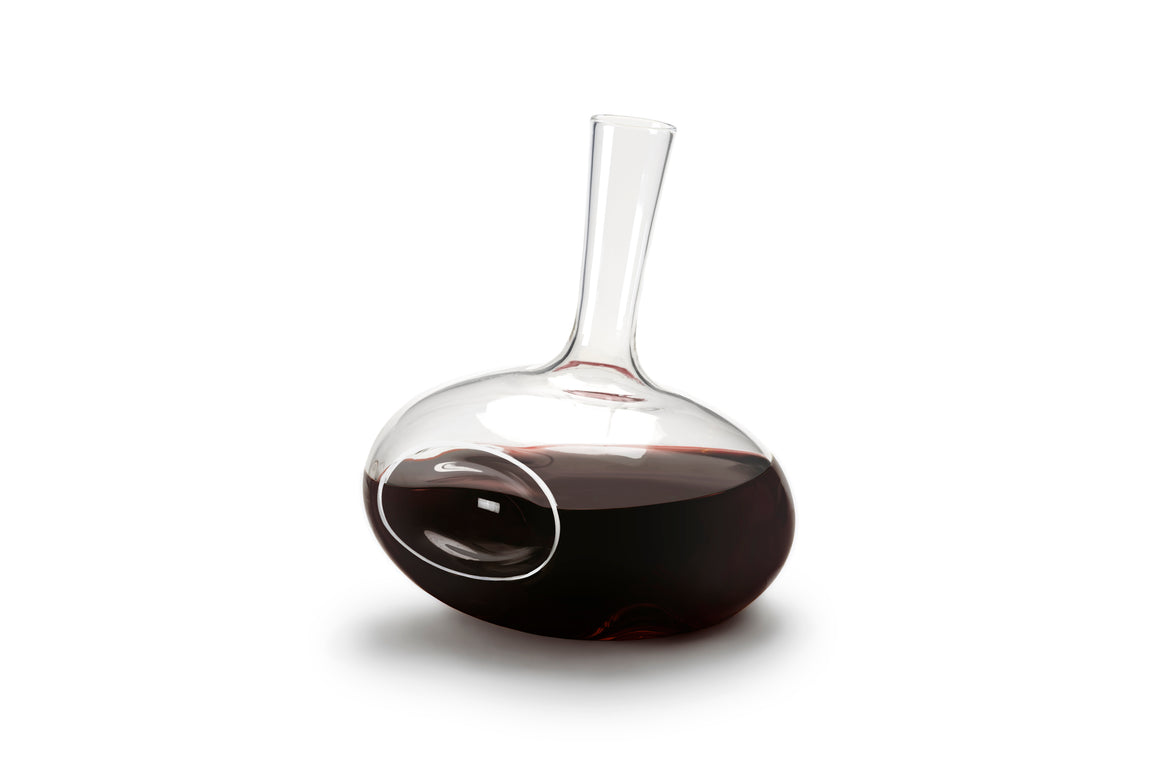MAKING
BOROSILICATE GLASS
Borosilicate objects are free blown on a lathe by a lamp worker, at a scientific laboratory glassware maker, who normally blows chemistry apparatus.

Borosilicate glass is more resistant to thermal shock than other glass. Borosilicate is referred to as 'hard glass' and has a higher melting point (approximately 1650 degrees Celsius) than 'soft glass'.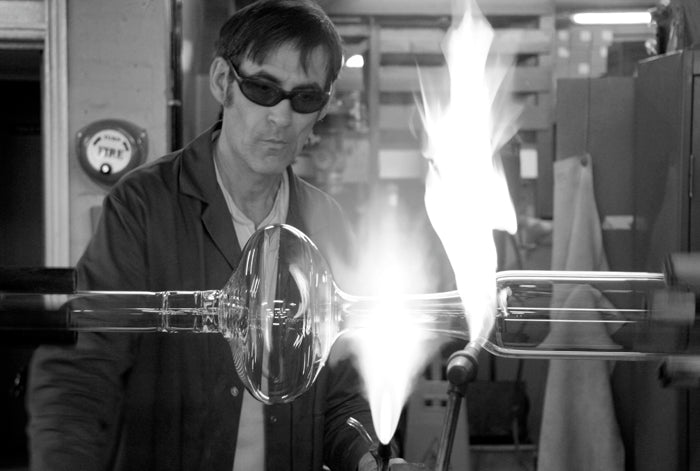
Because pieces are hand made, there is variation between each object and small air bubbles sometimes form, normally in the base - a desirable sign that they are not produced by machine.
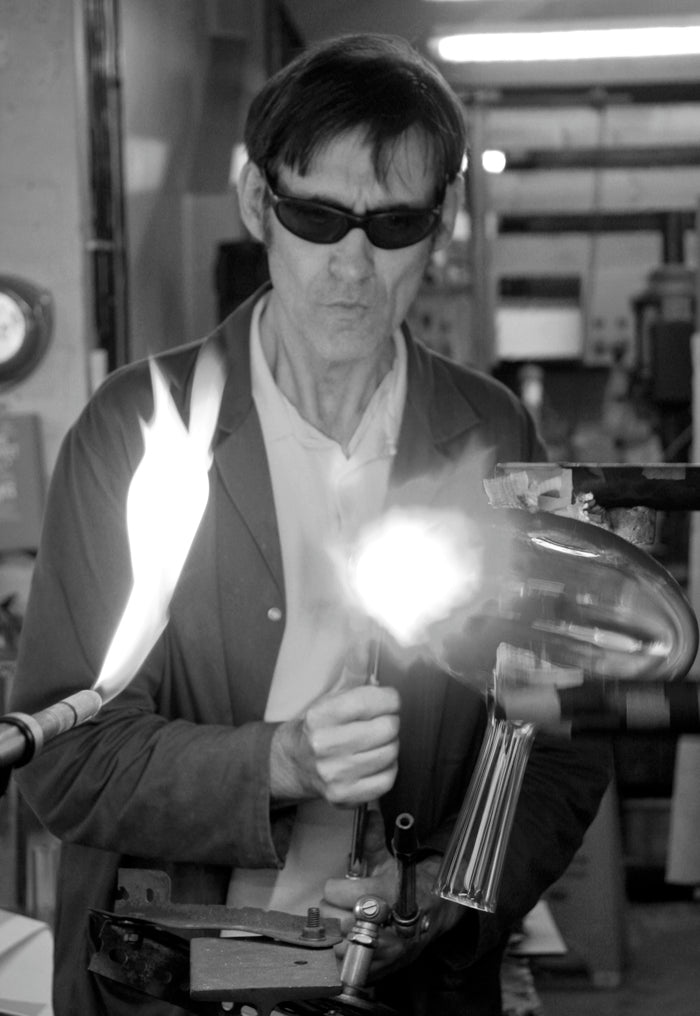
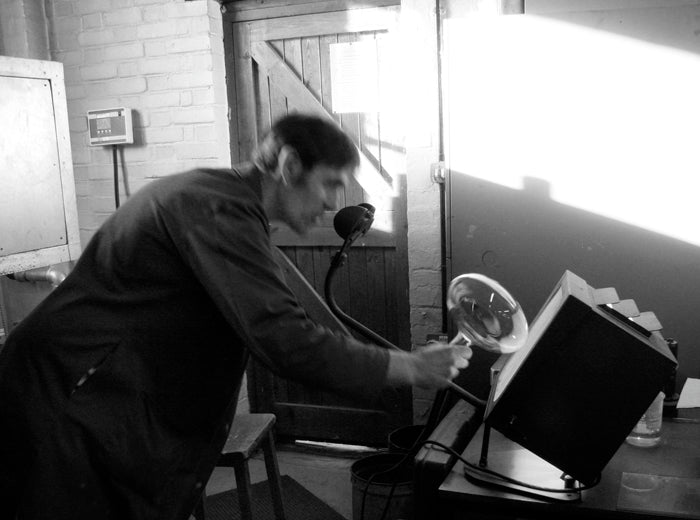
CRYSTAL GLASS
Our crystal is mouth-blown in the Czech Republic, where the designer's grandparents lived. Established at the beginning of the eighteenth century, the glassworks is the oldest still working glass factory in Bohemia. It is perfectly positioned, where timber surrounds the factory, water springs from the ground and quality glass sand is obtainable locally. The glassworks lives deep in the woods of the Giant Mountains of Bohemia.
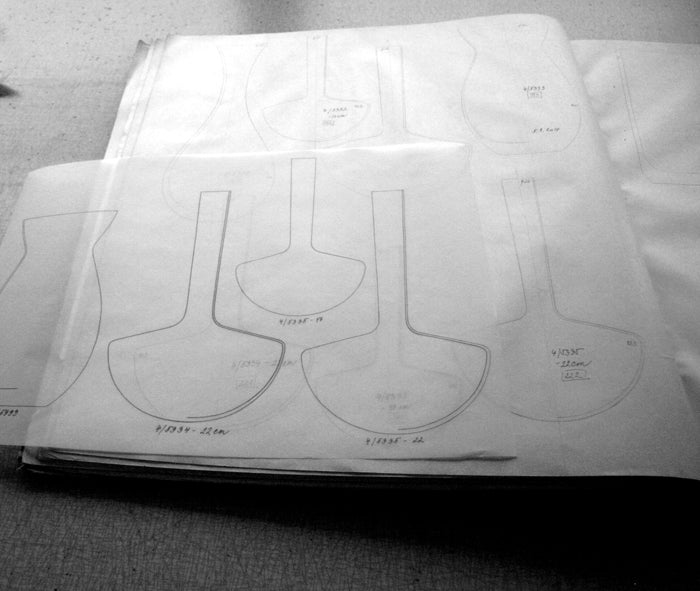
A designer draws the master design into a book, to keep a permanent record of the shape. This can then be traced by hand, each time a new mould is needed.
The glass is mouth-blown into a mould which is made from locally sourced beech wood. The wood must be saturated with water, which extends the life of the mould, so the beech trunks are placed into a lake. Only when the trunks touch the bottom of the lake, are they ready to be processed. The wet trunks are then taken out of the water and sliced into big pieces.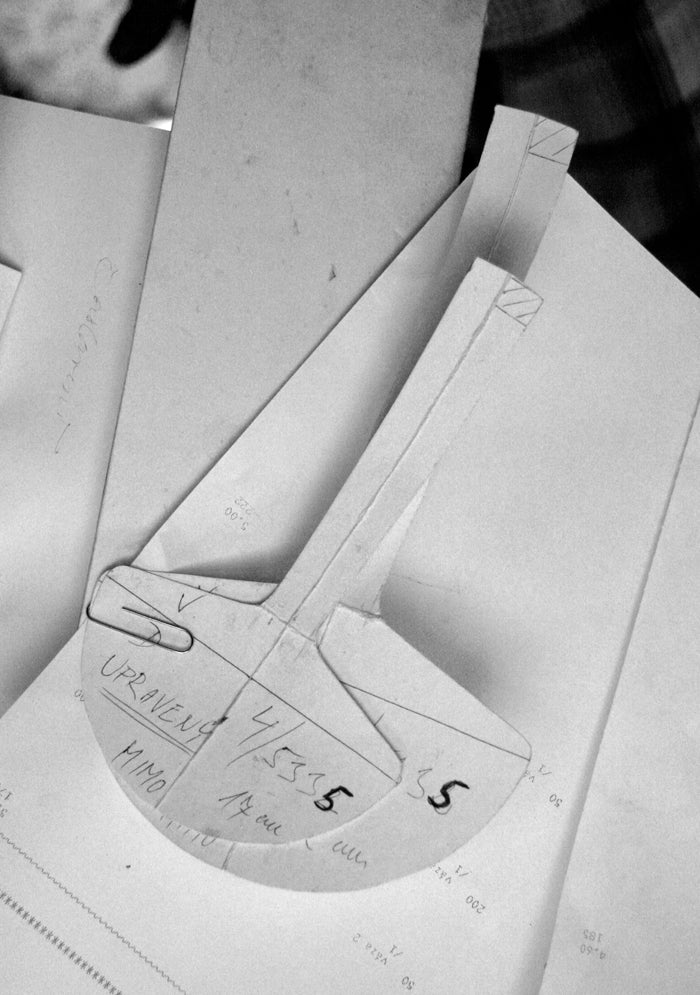
The shape is then cut out in cardboard, which is given to the mould maker as a template.
A raw block of wood is then fixed to a lathe to be carved out with chisels, with great precision.

Then the wooden block is cut in half, equipped with locks and handles.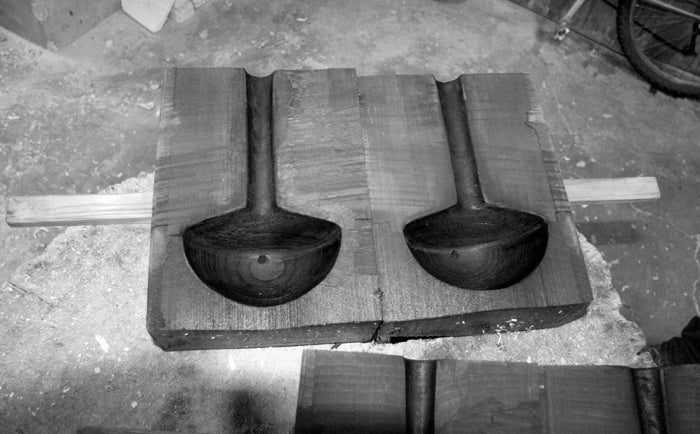
Each mould will produce no more than 80 pieces, by when the shape has become altered by the molten glass and it can no longer be used.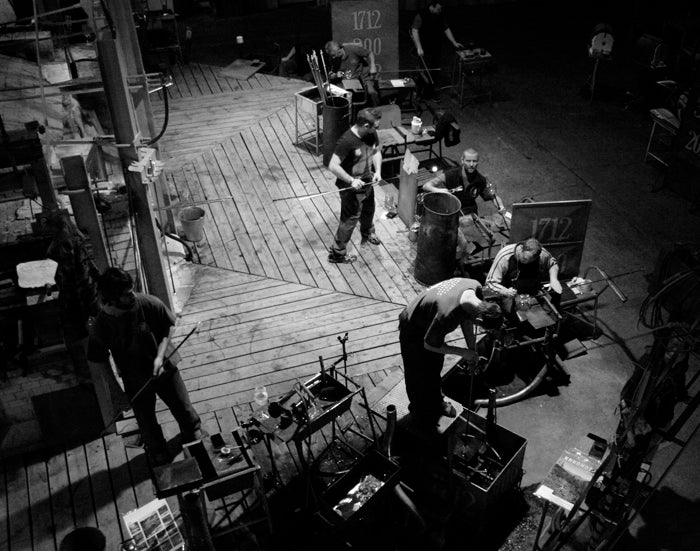

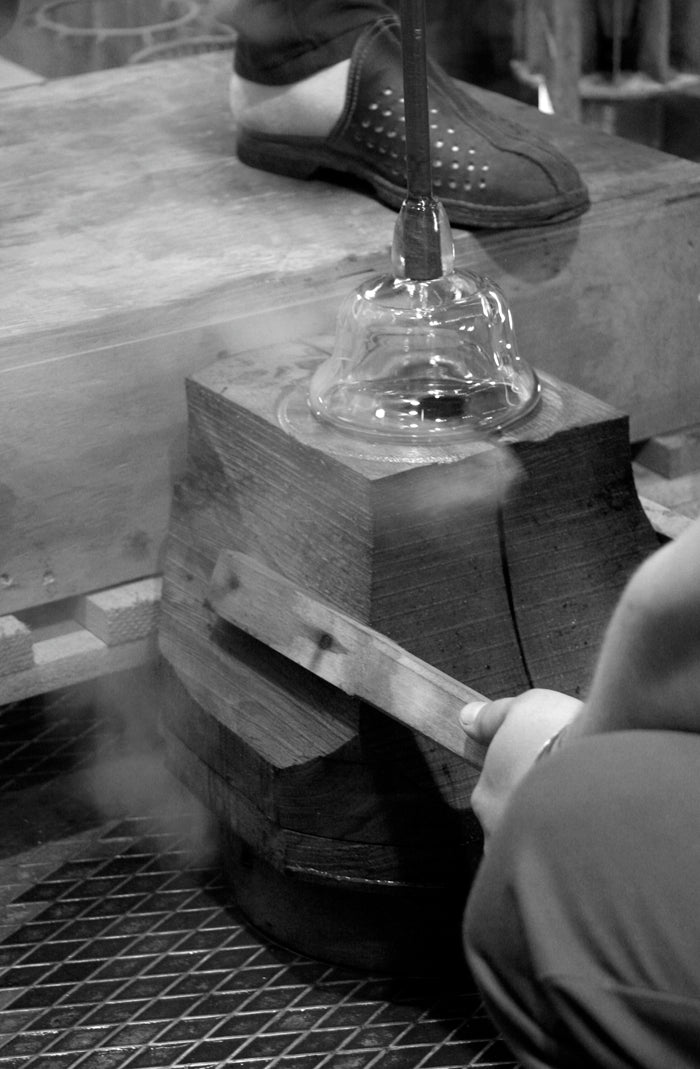

Sustainability of Production
Like most micro-entities, the Earth would be imperceptibly better off without us. We are transparent. We seek to discover how the Earth may be healthier with us rather than without us.
Glass
The material's structure does not deteriorate when reprocessed, so all waste can be reused in the making process. However, whilst the borosilicate and crystal waste is recyclable at the makers, realistically, if an owner breaks one (and with it our hearts), it is not easy to recycle, because most councils do not accept broken glass, nor do they recycle borosilicate or crystal, which have different melting points and properties to regular glass items.
Stainless Steel
Stainless steel is recyclable. In production, stainless steel uses scrap metal as its primary raw material.
Emotionally Durable Design
We design meaningful objects as an antidote to mass-produced, throw away products. Each object tells a story, so people connect with them. We do not design to trend, and our work is minimalistic, so pieces are timeless, not seasonal. Each one is designed with both love and pain, handmade with exceptional skill, so they shall be used and passed on.
Packaging
Our smaller glass objects are delivered in wooden gift boxes. The maker of our boxes says:
"We use timber that is responsibly sourced with the least possible damage to the natural environment. Our wood suppliers conform to international standards.
Certification ensures forests are managed to the highest environmental, social and economic standards with trees replanted or allowed to regenerate naturally.
Wood wool is made from PEFC approved natural spruce cultivated from European forests. No chemicals are used in the manufacturing process, and it can be recycled, reused, composted or burned completely".
If you do not require the wooden gift box, please let us know, ideally in advance of your order so that we may direct you to a product page without the box to purchase from. If you have just placed your order and would like the box omitting, please let us know and we can remove it from your order and make a refund to you this packaging part.
Box refund costs if you would like the wooden box removing
| 13˚ 60˚ 104˚ Decanter 0.75 litre | £11.00 |
| 13˚ 60˚ 104˚ Decanter Magnum | £21.80 |
| Rise & Fall of a Candle candleholder | £15.70 |
Wooden boxes may also be repurposed to make bird or bat boxes to support your local wildlife. The smallest sizes include instructions to convert them into bat boxes, and alternatively, an address to send them to, so that a scientist may add sensors to assess animal behaviour.


